The content of the article
- 1 Useful components in the composition of dill
- 2 Useful properties of dill
- 3 Potential Dangers
- 4 Dill-based recipes
- 5 Can I use dill seeds for pregnant women?
- 6 Dill seeds in the fight against colic in babies
- 7 Is it worth it to freeze dill for the future?
- 8 Cooking dill oil
- 9 Dill juice: specifics
- 10 Video: useful properties and contraindications of dill
Dill is an inexpensive, but very popular herb, widely used in the cuisines of many peoples of the world. And besides the characteristic aroma and bright taste, it is incredibly useful for our health. Fatty acids, minerals and vitamins have been found in dill greens, a balanced composition of which contributes to the normalization of blood pressure, activation of intestinal motility and gentle elimination of toxins. What is the use of dill, for what purposes can you make medicinal tinctures from it, and when is it better to refuse from its consumption?
Useful components in the composition of dill
Dill leaves are rich in B vitamins (riboflavin and thiamine), vitamin C, folic acid, salts of magnesium, phosphorus, iron and calcium. The fruits have a high concentration of vegetable protein and fats, which are necessary for the proper functioning of the heart and healthy metabolism.
Linoleic acid, belonging to the class of unsaturated omega-6 fatty acids, was found in dill. Excessive amounts of it in the human diet can provoke tumors and inflammation, and since it is present in the highest concentration in sunflower seeds, the oil of which we already eat in large quantities, it is much more reasonable to season salad with dill with linseed oil.
Useful properties of dill
- In official medical practice, dill is one of the key components of anetine. It is prescribed to improve the functioning of the heart muscle and the expansion of the vessels of the brain.
- Dill is useful for gastric and duodenal ulcers, it relieves pain and accelerates tissue regeneration.
- Dill seed suppresses putrefactive processes in the intestine, has a powerful bactericidal effect on the entire gastrointestinal tract. It promotes the engraftment of healthy microflora after antibiotics, especially in combination with probiotic complexes.
- Dill has diuretic properties that allow it to be used for problems associated with fluid stagnation in the body and as an effective means to eliminate toxins.
- Dill should be added to your diet and with a difficult outflow of bile. It normalizes the secretion of bile, which is necessary for the normal breakdown of food.
- Due to the bronchodilator action, dill can be used for chronic cough. It liquefies sputum and stimulates its discharge.
- In case of nervous excitability, dill will help relieve the accumulated tension. It is effective for insomnia, increases the general tone of the central nervous system, regulates the phases of excitation and inhibition, depending on the time of day.
Potential Dangers
Dill does not belong to the category of allergenic herbs, but individual intolerance to the product is sometimes found. Doctors recommend refusing dill to people with low blood pressure. Excessive amounts in the diet can provoke a decrease in overall tone, impair vision.
Dill-based recipes
The prevalence and high biological activity has made dill one of the key herbs in traditional medicine. Most often it is used in the form of infusions and decoctions, while the basis can be both dried seeds and fresh ones.
It is most effective in treating flatulence and pain in the intestines. For these purposes, take 1 tsp.dill seeds, crush them in a mortar, transfer to a glass dish and pour 1 cup boiling water. Cover the container with a lid, wrap it well and leave to infuse for 120 minutes. After separate the grass. Adult dosage: 100-150 ml 3 times a day before meals. Children's - no more than a tablespoon 3 times a day.
To increase lactation and a weak diuretic effect, take one tablespoon of dill seeds and 200 ml of very hot water, insist under the lid for 30 minutes. Strain the resulting infusion and consume 1 tbsp. before each meal at least 15 minutes.
Dill infusion can also be used if there are small stones in the gallbladder. 2 tbsp dill seeds pour 2 cups of boiling water and leave in a water bath for 10-15 minutes, reducing the heat to a minimum. Cool and strain. Drink half a cup of broth at room temperature 20 minutes before meals 4-5 times a day. The optimal course of treatment is a few weeks.
For bacterial infections, instill dill oil in each nasal passage, 1-2 drops.
A combination of dill water and carrot juice is also very useful for improving vision. To make a drink, you will need 20 ml of dill juice (for this you need a screw juicer). It must be mixed with 100 grams of carrot juice and drunk in the morning on an empty stomach. In summer, you can increase the amount of dill in a cocktail by 2 times.
If you suffer from insomnia, take 50 grams of crushed dill seeds and pour them with 0.5 liters of any red wine. Bring it to a boil and let cook over low heat for 30 minutes. Pour the mixture into a dish with a lid, wrap and let it brew for at least an hour. Ready tincture should be filtered and consumed immediately before bedtime. 30-50 grams is enough to forget about the problems with falling asleep.
Can I use dill seeds for pregnant women?
Women in position should preferably be careful with the use of dill in excessive quantities. This is due to the high concentration of vitamins and minerals, which in excess can provoke an increase in tone. After consulting with the doctor, you can use the dill infusion for constipation and edema. If there are no contraindications from the cardiovascular system, dill broth will help a woman in a position to normalize blood pressure.
Dill seeds in the fight against colic in babies

Dill water - this is perhaps the most popular tool for eliminating flatulence in infants. It not only suppresses colic, but also improves the functioning of the entire intestine, and has an indirect calming effect on the child’s nervous system. You can buy it at the pharmacy, or you can cook it at home. The broth is done very quickly: 1 tsp. crushed dill seeds pour 250 ml of boiling water. Use only clean water that is safe for the baby. The liquid should be infused for an hour, after which it must be filtered and can be given to the child. Make sure the infusion is not hot. The optimal amount of dill water depends on the age of the baby: give 1 tsp to the newborn 20 minutes before feeding 2 to 4 times a day.
Is it worth it to freeze dill for the future?
Despite the fact that greens are available in supermarkets all year round, it is better to stock them in the summer season. Fresh dill best retains its properties in the freezer. And its correct preparation assumes the following sequence of actions:
- We cut off the stiff stems. For freezing, only the soft top of the plant is used.
- We put the greens in a deep bowl, rinse it under running water and leave it in clean water for several hours. Soaking is necessary in order to get rid of bacteria that always settle on any grass, and to wash out pesticides and any chemistry accumulated in the soil from the plant.
- We spread dill on a waffle or paper kitchen towel and leave it to dry.
- If necessary, finely chop it or leave the whole branch.
- We put the dill in a plastic bag and put it in the freezer.
Frozen dill is easily removed with a knife. But if desired, it can be frozen by laying in ice molds.
Dill seeds can either be prepared independently or purchased at a pharmacy. In the first case, collect in the morning, immediately after the dew has dried. The day before the intended seed collection, dill must be carefully watered.
Store seeds in a sealed container in a dark place.
Cooking dill oil
Dill oil is often used to suppress excessive appetite, as a light analgesic and choleretic.
If there is no way to prepare the oil yourself, you can buy it at a pharmacy. On an industrial scale, it is obtained using steam distillation technology.
Dill juice: specifics
Natural juice from dill squeezed from fresh leaves is no less useful for the work of the entire digestive tract. It goes well with other vegetable juices, especially carrot juices. The regular use of such a cocktail will have a great effect on vision.
Dill juice is widely used in cosmetology. On its basis, you can make masks and lotions that will perfectly moisturize the skin. If you suffer from age spots, use dill and parsley juice in a 1: 1 ratio. Moisten a cotton sponge with the product and wipe your face with it. And in combination with lemon juice and aloe, it perfectly restores damaged hair follicles and cleanses dandruff from the scalp.
Dill is not just a herb that we are used to adding to food. This is a storehouse of vitamins, minerals and fiber, the regular use of which contributes to the proper functioning of all major organs and systems.
Video: useful properties and contraindications of dill

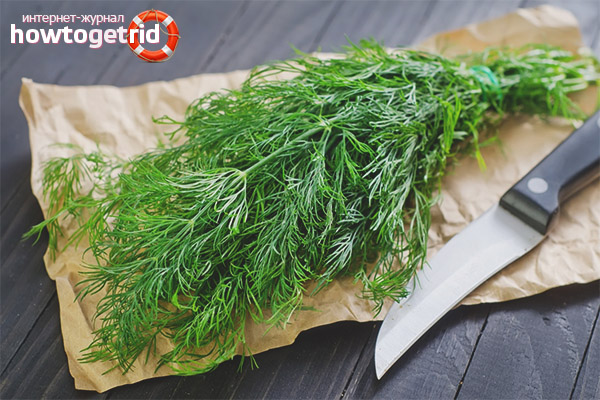
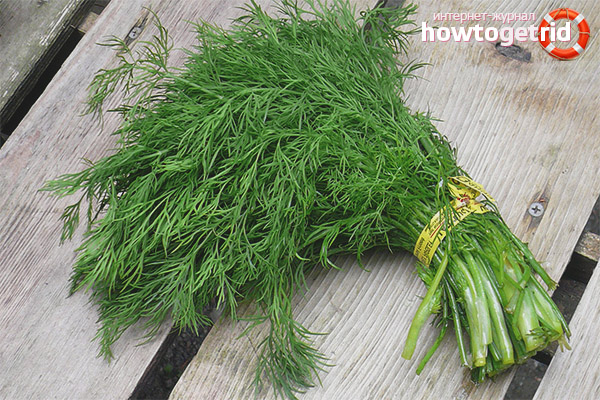
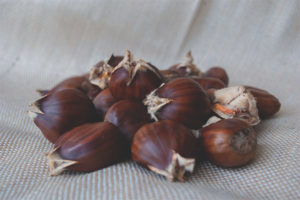
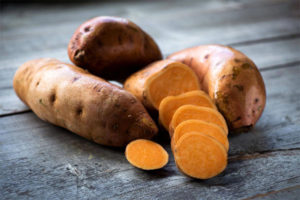
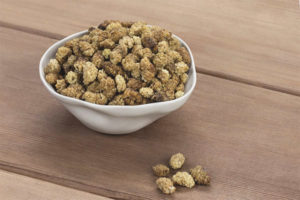
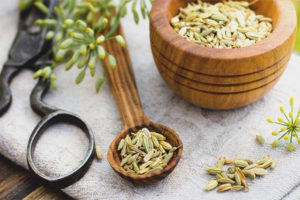
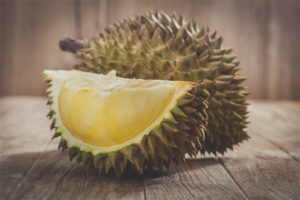
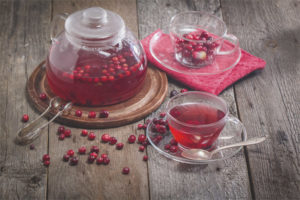
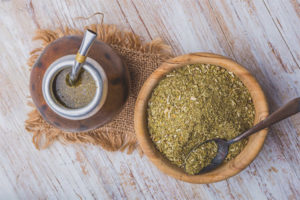
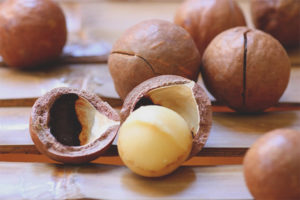
Submit